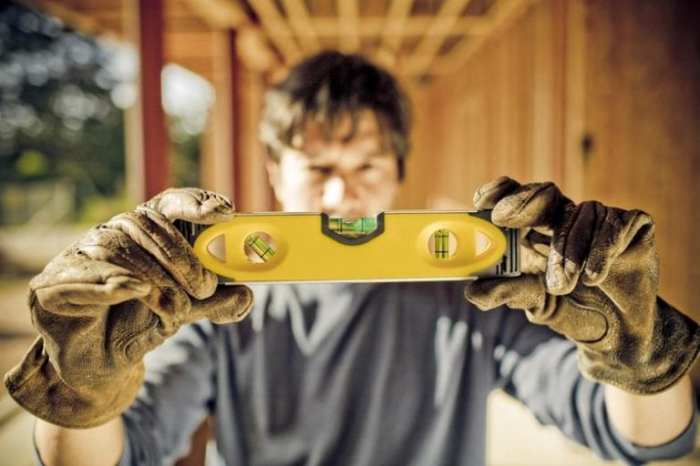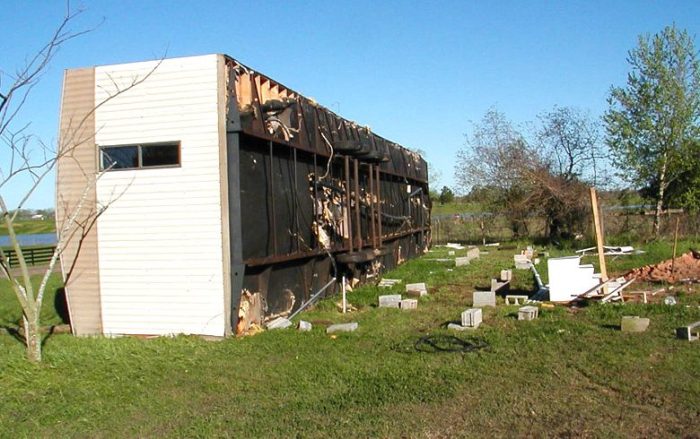A mobile home secured to the ground qualifies – When a mobile home is secured to the ground, it qualifies as real property, a legal distinction with significant implications. This article explores the legal ramifications, methods for securing a mobile home, impact on resale value, safety considerations, zoning and building codes, financing options, and maintenance and repairs associated with a mobile home secured to the ground.
Understanding these factors is crucial for homeowners, potential buyers, and real estate professionals involved in transactions involving mobile homes.
Legal Implications of Mobile Home Ownership
The legal implications of mobile home ownership are unique due to the classification of mobile homes as either chattel (personal property) or real property. Securing a mobile home to the ground can have significant legal ramifications.
Chattel vs. Real Property
Mobile homes are typically classified as chattel, meaning they are not permanently attached to the land and can be moved from one location to another. However, when a mobile home is secured to the ground, it may be considered real property, which is permanently attached to the land and cannot be moved without significant effort.
Legal Ramifications of Securing a Mobile Home to the Ground
- Property Taxes:Securing a mobile home to the ground may increase property taxes, as it is now considered real property and subject to local property tax rates.
- Insurance:Securing a mobile home to the ground may affect insurance premiums. Insurers may consider a secured mobile home as a permanent structure and charge higher premiums.
Methods for Securing a Mobile Home

There are several methods for securing a mobile home to the ground, each with its advantages and disadvantages.
Piers
- Advantages:Piers provide a solid foundation and are suitable for most soil types.
- Disadvantages:Piers can be expensive to install and may not be suitable for all locations.
Anchors, A mobile home secured to the ground qualifies
- Advantages:Anchors are less expensive than piers and can be installed in most soil types.
- Disadvantages:Anchors may not provide as much stability as piers and may not be suitable for high-wind areas.
Tie-Downs
- Advantages:Tie-downs are the least expensive method of securing a mobile home and are easy to install.
- Disadvantages:Tie-downs may not provide sufficient stability in high-wind areas and may not be suitable for all locations.
Step-by-Step Instructions for Securing a Mobile Home
The specific steps for securing a mobile home to the ground will vary depending on the method chosen. However, the general steps include:
- Level the mobile home and place it on the desired location.
- Install the piers, anchors, or tie-downs according to the manufacturer’s instructions.
- Connect the mobile home to the piers, anchors, or tie-downs.
- Inspect the installation to ensure it is secure and meets local building codes.
Impact on Resale Value: A Mobile Home Secured To The Ground Qualifies

Securing a mobile home to the ground can affect its resale value in several ways.
Factors Affecting Resale Value
- Stability:A secured mobile home is more stable than an unsecured mobile home, which can increase its value.
- Land Ownership:If the mobile home is secured to land that the owner owns, it may be more valuable than a mobile home on leased land.
- Location:The location of the mobile home can also affect its resale value.
Tips for Maximizing Resale Value
- Secure the mobile home to the ground using a reputable method.
- Maintain the mobile home and make necessary repairs.
- Consider landscaping and other improvements to enhance the property’s appearance.
Safety Considerations

Unsecured mobile homes can be hazardous in high-wind areas or during earthquakes. Securing a mobile home to the ground can mitigate these hazards.
Hazards of Unsecured Mobile Homes
- Wind Damage:Unsecured mobile homes can be lifted and overturned by strong winds.
- Earthquake Damage:Unsecured mobile homes can be shifted or damaged by earthquakes.
Benefits of Securing a Mobile Home
- Stability:Securing a mobile home to the ground provides stability and prevents it from being moved by wind or earthquakes.
- Safety:A secured mobile home is safer for occupants and less likely to cause damage to property or people.
Recommendations for Safety
- Secure the mobile home to the ground using a reputable method.
- Inspect the installation regularly to ensure it is secure.
- Have a plan in place for evacuating the mobile home in the event of a natural disaster.
FAQ Explained
What are the legal implications of securing a mobile home to the ground?
Securing a mobile home to the ground can convert it from personal property to real property, affecting property taxes, insurance, and financing options.
What are the different methods for securing a mobile home to the ground?
Common methods include piers, anchors, and tie-downs, each with its advantages and disadvantages.
How does securing a mobile home affect its resale value?
Securing a mobile home can increase its resale value by making it more permanent and appealing to potential buyers.
What safety considerations should be taken when securing a mobile home?
Properly securing a mobile home reduces the risk of wind damage, earthquakes, and other hazards.
What zoning and building codes apply to mobile homes secured to the ground?
Local zoning regulations and building codes may have specific requirements for mobile homes secured to the ground.